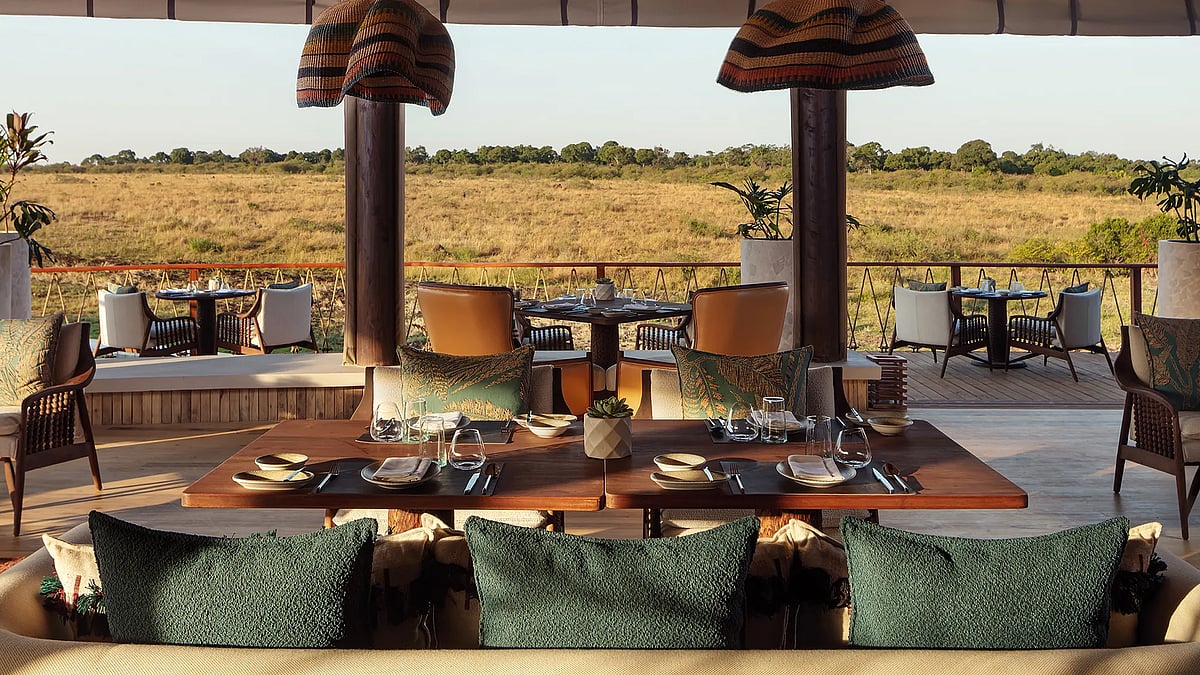World
Luxury Masai Mara lodge case threatening Great Migration to be heard this week
The case underscores tensions between luxury tourism and Maasai communities, who say development disrupts their land, livelihoods, and culture

The fate of the Ritz-Carlton’s newly opened safari lodge in Kenya’s Masai Mara will be addressed in court this week, after conservationists and Maasai leaders filed a lawsuit claiming the property threatens one of East Africa’s most fragile ecosystems.
The dispute centres on a 20-tented suite lodge and a four-bedroom villa that opened in August, marketed as offering guests a “front-row seat” to the Great Migration.
Meitamei Olol Dapash, director of the Institute for Maasai Education, Research and Conservation (MERC), filed the suit in Kenya’s Environment and Land Court against Marriott International, the lodge’s local developer Lazizi Mara Limited, and Kenyan authorities.
Dapash alleges that the lodge obstructs a critical migration corridor connecting the Masai Mara to Tanzania’s Serengeti, a route vital for wildebeest and other species to find food and maintain genetic diversity. The lawsuit also claims that no transparent environmental impact assessment was carried out and requests the court to suspend the lodge’s operations pending a full hearing.
“Preservation of wildlife migration for us is a treasure we cannot afford to lose,” Dapash said.
Marriott, which operates the lodge under a franchise agreement with Lazizi Mara, defended the development, stating that all necessary approvals had been obtained. Lazizi’s managing director, Shivan Patel, told Reuters that Kenyan authorities had conducted an environmental impact assessment, concluding that the site was not a wildlife crossing point.
Published: undefined
Narok County, which adopted a management plan in 2023 calling for a moratorium on new tourism developments until 2032, has publicly defended the project as lawful and aligned with conservation goals.
Ecologists, however, have expressed concerns over the ecological risks of building in such a sensitive corridor. Joseph Ogutu of the University of Hohenheim called the construction on the Sand River “highly ill-advised,” while Grant Hopcraft, an ecologist at the University of Glasgow, warned it could have “large and long-term ecological implications” for wildlife. Many species in the reserve have already seen population declines of over 80 percent since the 1970s.
The case highlights broader tensions between luxury tourism and local Maasai communities, who argue that development disrupts their land, livelihoods, and cultural practices. Unlike specialist safari operators with long histories of conservation and community engagement, Ritz-Carlton is new to the region, raising concerns that profitability pressures could take precedence over ecological and community commitments.
The lodge, with nightly rates starting at $3,500 per person, offers plunge pools, personalised butler service, and close proximity to wildlife, underscoring the tension between high-end tourism and conservation priorities.
With the court set to hear the matter this week, the Ritz-Carlton Masai Mara has become a focal point in debates over sustainable tourism in East Africa, testing whether global hotel brands can balance luxury offerings with ecological and cultural imperatives.
Published: undefined
Follow us on: Facebook, Twitter, Google News, Instagram
Join our official telegram channel (@nationalherald) and stay updated with the latest headlines
Published: undefined